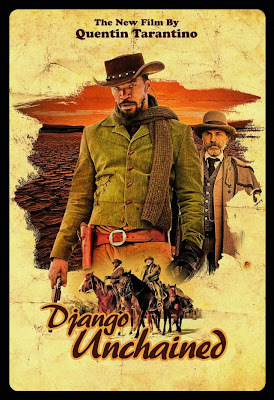Formulaic Family Hijinks Found In ‘This Is Where I Leave You’ (Movie Review)
This Is Where I Leave You: 2 ½ out of 5
Hilary Altman: For the
next seven days you are all grounded.
This is Where I Leave You is the kind of film that walks the line
between being aware it is not treading new ground, but still wants to make you
happy, based on all the talented actors involved, and treating its subject
matter in a more serious manner. It is a film featuring characters that
are mostly not all that inherently interesting, but because they are played by
people like Jason Bateman and Tina Fey, the film at least has some reliable
performances to stand behind them. It is nothing new to have a small
period of time serve as a way of course correction for the lives of a family in
a film, but while this film is fairly enjoyable, it lacks much of anything to
really make it stand out. It is a film that does just enough, but sits a
couple spots away from being essential viewing.
The film features an ensemble cast, but Bateman is ostensibly
our lead. He plays Judd Altman, one of four siblings in the Altman
family, who has just discovered his wife (Abigail Spencer) is cheating on him
with his boss (Dax Shepard). Making his week worse, Judd’s father has
passed away, which not only requires him to see his whole family, but also to
sit Shiva at his childhood home. The Altman’s are not exactly practicing
Jews, but it was apparently their father’s dying wish, so Judd must now live with
his sister Wendy (Tina Fey), his two brothers Phillip and Paul (Adam Driver and
Corey Stoll), and their mother (Jane Fonda) for a week.
There are other characters too, which is part of what holds This
is Where I Leave You back. While it is great to see such a
strong cast assembled for a film, there are too many good actors that don’t
have enough to do. This film attempts to
squeeze in moments for each character every so often, which leads to varying
amounts of success. Timothy Olyphant, for example, is probably the most
interesting character in this film, as he plays a neighbor across the street,
who used to be in a relationship with Wendy, but a brain injury stopped that
dead in its tracks. I could watch a film that surrounds just the
characters involved in this story, but we only get the basic beats of it in
this ensemble film, which is effective enough, but a shame, given what the
actors bring to this sub-story.
Only spending so much time with the various characters would
matter little if the overall arc was quite strong or if the laughs were big and
consistent, before nailing us with effective drama, but that is not so much the
case. This film does function as a comedy-drama and actors like Bateman
and Fey can easily nail the sort of dry/straight man comedic timing that is
required of them, so that is fine. Also fun is Adam Driver, who is
consistently entertaining as the black sheep of the family, who does little to
filter himself. While the film unfortunately has too many of its funniest
bits in the marketing, it is when we get to the dramatic beats that the film
only goes so far to connect with the audience. Having a plot about a
deceased father and relationship issues can lead to some easy sympathetic
moments, but a better director could make a story like this feel less obvious.
For this film, whether it is in the writing (Jonathan Tropper
adapted his own book into the screenplay) or the direction by Shawn Levy
(taking a break from kid-friendly fare such as Night at the Museum and The
Pink Panther), something seemingly simple enough like giving us a good idea
of who the father of these siblings was ends up as muddled in an effort to give
us various plot beats that allow the actors to put on sad faces, when needed,
rather than making their reactions and grief feel more organic. There are
a lot of aspects of this film that end up seeming more like a sitcom, whether
it is the random accents adopted by Fey and Rose Byrne’s character or the goofy
results of how to deal with the ‘bad guy’ in the film, before making important
relationship choices via large public displays. This may be a mainstream
film, as opposed to an art house feature, but it does not mean a film like this
needs to stick to formulaic material so clearly and with such indifference to
coming off as generic.
I guess I should go back to praising certain aspects, as the
film does have a number of things going for it, beyond the clear issues I
have. As stated, Jason Bateman is great here, as he usually is.
Tina Fey gets to work on her dramatic work a bit more, which is also nice to
see. There are a few good laughs that generally extend from Adam Driver’s
presence, but the cast, as a whole, have solid chemistry, making up for the
fact that these people do not look related to one another. I was also
happy to see this film play fairly loose with the dialogue. This
is Where I Leave You is rated R for language and while the film is not
full of a ton cursing, it feels like these characters are speaking
appropriately enough, which ended up landing this film with a certain rating,
rather than one that exploited the idea of going for a certain rating.
All this is to say that the film feels like an appropriate one
for adults. This is Where I Leave You is not
hard-hitting stuff and it is not a laugh riot either. The film is a
straight-forward family comedy-drama with solid performances that make it
suitable to check out, without seeming like a film that insists on being
awarded. I had problems with August Osage County for
this reason last year, but at least that film felt like one with a level of
edge, making it more substantial viewing overall. This is Where I
Leave You is a family film for grown-ups, but nothing above the
average story of a dysfunctional family coming together to finally grow up a
bit themselves.
Judd Altman: Is it the whole world or just this family?










Comments
Post a Comment